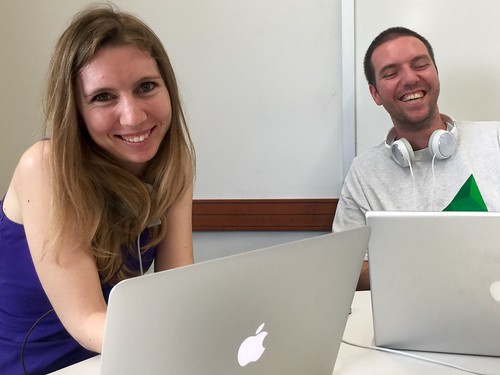The StartFast Venture Accelerator is a "mentorship-based accelerator" program. There is a lot of confusion about what mentorship is, and a lot of confusion about what an accelerator is. StartFast has built a very specific program to enable high-growth companies to make a year's worth of progress in just 3 months. We ask each company to create SMART goals to make this real. SMART usually stands for Specific, Measurable, Achievable, Realistic, and Time-bound. The problems are Achievable, Realistic. To make a year's worth of progress in 3 months, we replace these works with Aspirational and Radical. In our program, companies achieve radical improvements in the specific metrics the company aspires to achieve. That's what we mean by a venture "accelerator." One of the techniques we use to create radical improvements is mentorship. It's important to understand what mentorship is, and how it works in the StartFast program.Back in 2011, David Cohen and Brad Feld (founders of TechStars) and Jon Bradford came up with the Mentor Manifesto. We've modified it slightly from the original to reflect our core values more closely.The StartFast Mentor Manifesto
One of the techniques we use to create radical improvements is mentorship. It's important to understand what mentorship is, and how it works in the StartFast program.Back in 2011, David Cohen and Brad Feld (founders of TechStars) and Jon Bradford came up with the Mentor Manifesto. We've modified it slightly from the original to reflect our core values more closely.The StartFast Mentor Manifesto
None of the foregoing are easy in practice. Mentors usually have so much more experience and context than founders, that it's easy to fall into the trap of telling rather than listening and asking questions. Being a great mentor happens over time, with lots of experience and practice.Part of our commitment as a program is to develop great mentors, and that means introducing new mentors from time to time. New mentors (like first-time founders) make a lot of the same mistakes. Here are a few of the most common rookie-mentor mistakes to be avoided:
Following the mentor manifesto and avoiding these pitfalls can make for a great, rewarding and transformative (for both mentor and founder) experience. In the context of the StartFast program, we combine a large number of new and experienced mentors to make sure that the founders receive a cross-section of many points of view, ideas, resources and introductions.Founders must choose among all of these inputs. The term "Mentor Whiplash" describes the effect of all these opinions on the founders. This process serves to decondition their minds, loosen their egoic hold on prejudices and narrow viewpoints, so that they can choose the path forward from a higher, more free state of awareness.As the managers of the program, we must provide the context necessary for the founders to undergo this personal growth process at a rapid pace. Invariably, some founders are unable to fully let go and let the process take its course. They may be swayed by a charismatic (or highly negative) mentor and pivot in the direction of the last advice they heard. These premature pivots are, at best, a waste of time. At worst, such a premature pivot can kill the company. I've seen it happen. More importantly, the biggest opportunity lost is the development of a more mature founding team operating at a higher level of executive function. Another pitfall we see is the devolution of the team into various "cofounder issues" which is a euphemism for in-fighting / internecine battles that are the refuge of founders not ready to transform. A few teams will fall into these traps. For those founders that are ready, the accelerator is a crucible in which the great leaders of new high-growth companies are forged . Those that make the transition successfully, exit the accelerator program with an expanded understanding of who they are and how they can and will change the world for the better, and the confidence to move forward without wasted time and effort. They leave armed with a methodology for decision-making based upon data and a strong sense of their abilities to lead. There is nothing I've experienced that quite matches that of mentoring in such a process.
For those founders that are ready, the accelerator is a crucible in which the great leaders of new high-growth companies are forged . Those that make the transition successfully, exit the accelerator program with an expanded understanding of who they are and how they can and will change the world for the better, and the confidence to move forward without wasted time and effort. They leave armed with a methodology for decision-making based upon data and a strong sense of their abilities to lead. There is nothing I've experienced that quite matches that of mentoring in such a process.